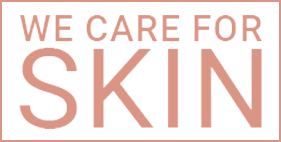A regular skincare routine can help you maintain your skin health and address particular issues like acne, scars, and dark spots on face regardless of your skin type.
A daily skincare regimen consists of at least six basic steps that should be completed once in the morning and once before bedtime. Most individuals use a cleanser, toner, and moisturizer during the day with SPF, and a night cream before bedtime while some of you add up some serums like antioxidants for day and retinol at night. But first things first—you need identify your skin type as this would determine the right product for you. Once you’ve identified your skin type, it is only by then that you will achieve visible results.
So as not to keep you from further guessing — just keep on scrolling, babe! We’ve put up a guide to a daily skincare routine and listed the specific types of products you should be looking for based on the type of your skin.
CLEANSE (Morning/Night)
Choose a cleanser that does not dry out your skin after use. A sulfate-free cleanser with a gentle lather works best for those with Normal Skin types. For those with Dry Skin, clean your face no more than twice a day and use a no-foam, no-lather, super-mild cleansing lotion. For people with Oily Skin, wash your face three times a day with a gel or foam cleanser free of sulfates — this will help a lot in cutting the oil in your skin. If you have a Combination Skin, try a cleansing gel. You can switch to a cleansing lotion if your skin starts getting too dry. For Sensitive Skin, a gentle sulfate-free cleansing lotion will work while a no-foam, no-lather, super-mild cleansing lotion is ideal for those with Ageing Skin.
TONE (Morning/Night)
Alcohol ingredient which is often present in toners should be avoided because it gives a dehydrating effect to the skin.
Those with Normal, Oily, and Combination Skin individuals should look for toners that boost brightening and bring balance to skin's pH level. These are toners with salicylic acid, or witch hazel, or alpha-hydroxy acids (AHAs). If you have Dry Skin, go for toners with glycerin or hyaluronic acid, since they can provide hydration. Calming, anti-inflammatory ingredients like green tea aloe vera or chamomile extract are suitable for those with sensitive skin. While toners that have AHAs and BHAs help in brightening ageing skin.
Tip: Don’t forget to also give some love to your neck since it often shows the first sign of aging.
SERUMS (Morning/Night)
A highly potent antioxidant serum (look for vitamins E, A, and C) during the daytime to help prevent collagen breakdown for those with dry skin. If you have acne, salicylic acid and tea tree oil are two ingredients to look for. For Ageing skin, look for ingredients like licorice and vitamin C, to fade dark spots on face and discoloration. Retinol or prescription retinoids function best at night.
MOISTURIZE (Morning/Night)
If you have a Normal Skin type, a light moisturizer with an SPF of at least 30 will protect your skin from the sun and hydrate without clogging your pores. For those with Dry Skin, a hydrating moisturizer with SPF is the final step in your a.m. skin routine.
Did you know that even oily skin needs moisturizer!? Tip: You might actually get oilier when it’s dehydrated, by overcompensating. So, if you have Oily Skin, choose a light, gel-based, oil-free moisturizer, and non-comedogenic so it doesn’t block your pores. A fragrance-free moisturizer suits best for those with Sensitive Skin while a moisturizer that contains anti-oxidant is good for those with Ageing Skin. At night, you can go with a creamier moisturizer.
EYECREAM (Night)
Look for an eye cream with peptides because it absorbs easily.
SUNSCREEN (Morning)
Before going outside, apply sunscreen with at least 30 SPF 15 minutes prior because sunscreen takes time to activate. Take note that because hyperpigmentation is more difficult to correct, darker skin tones require greater sun protection.
That’s it! Remember, if your skin isn't exceptionally oily or dry, and your concerns are not about anti-aging, acne, or sensitivity, then you have normal or "balanced" skin. Oily skinned people produce more oil naturally, so if you belong to this type, the objective is to find solutions that have components that help reduce excessive oil production. While those with sensitive skin need to be non-irritating. If you have dry skin, you must look for products that will keep your skin hydrated. For ageing skin regimen, the main objective is to plump up wrinkles, lift sagging, and fade dark spots on face such as hyperpigmentation and melasma. However, because melasma is a problem from within, oral treatment that combat the condition is also recommended. Aside from topical creams, you may also want to look for a supplement with ingredients like procyanidin, vitamin C, Beta Carotene, and d-alpha Tocopheryl Acetate which help in fighting damaging free radicals that are triggering factors for Melasma.
Don’t forget to read the labels and to always choose products that are appropriate for your skin type and sensitivity. Start with a basic and easy regimen before adding some more products so you can check and observe how your skin responds to it. You may then add more products like exfoliants, masks, spot treatments, and oral supplements to enhance your skin's health once you’ve become comfortable. Also, remember to patch test new products, especially if you have sensitive skin. This can aid in the detection of allergic reactions.
Achieving skin goals isn't simple, and it may seem to be difficult most of the time, but recognizing your skin type, identifying frequent difficulties, and finding appropriate remedies will make your objective a lot easier to attain.
***Article submitted by themermaidinstilettos.com



